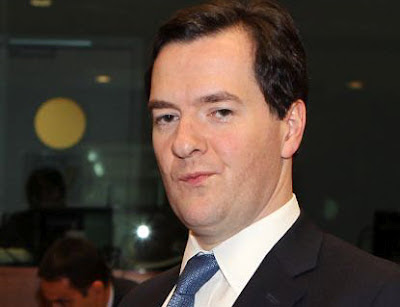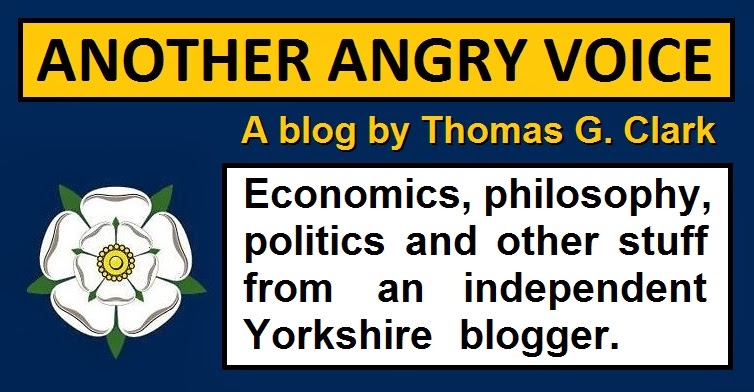 |
| Boris Johnson, much smarter than he looks |
Over the years the London Mayor Boris Johnson has carefully crafted a demeanour of harmless buffoonery with bumbling appearances on the topical news quiz Have I Got News For You, an occasionally outlandish dress sense and his trademark scruffy blond barnet.
I am of the opinion that one of the core Tory party strategies is to hide their malicious intentions behind a smokescreen of feigned incompetence and that Boris is one of the most adept at using this strategy. Behind this public image of harmless upper-class twittery there lies a cool and calculating political strategist.
This "don't blame me, I'm just an idiot" self-defence strategy seems to be underpinned by one of the most infuriating adages in the English language; Hanlon's Razor, which goes "Never attribute to malice that which is adequately explained by stupidity". In my opinion this adage is completely backwards. Despite a few notable exceptions, extremely stupid people rarely manage to obtain positions of political power, so to offer them the eternal excuse of "incompetence" is idiotic. If these people have demonstrated the drive and determination to get their hands on the levers of power, should we assume that they have just been pulling the levers randomly until they caused some unforeseen consequence? Or should we generally assume that they were pulling the levers for their own personal benefit until they got caught out?
When analysing the political activities of neoliberals, it is always useful to remember that one of the fundamental assumptions that underpin neoliberal theory is that economic efficiency is supposedly achieved through individuals pursuing their own personal self-interest. If we accept that the key factor behind most of the litany of Tory scandals is incompetence rather than malicious self-interest, we are actually conning ourselves into believing that these people are ignoring one of the tenants of their beloved greed-is-a-virtue neoliberalism and allowing ourselves to be tricked into thinking that they are too stupid to even serve their own self-interests.
This strategy of feigning uselessness is not just limited to modern day Tories. Top businessmen such as Nick Buckles of G4S and Bob Diamond of Barclays have tried feeble last-ditch attempts to protect themselves from criticism with claims of ignorance of the widespread corruption and incompetence within the companies they were supposedly running.
Returning to Boris Johnson, I believe that within his recent statements to the press there is plenty of evidence that this guy is a cold and calculating political strategist rather than the charming and eccentric upper-class buffoon he pretends to be.
In the wake of the Barclays Libor scandal and the HSBC money laundering scandal Boris has been keen to speak out against the tightening of financial sector regulation, in his words: "What I certainly don't think you should try to do is address people's
general economic malaise and anxiety by over-regulating one sector, and
causing gloom and despondency in financial services". He has also been keen to put the boot into George Osborne's disastrous self-defeating austerity agenda.
 |
| Boris has begun criticising Osborne because it is increasingly clear that Gideon's mindless obsession with cust-cutting and his hubristic temperament are going to eventually lead to his downfall. |
The reason he is attacking Osbornomics is absolutely clear, Osborne's ideological obsession with austerity has driven the UK back into recession. More and more people are recognising the idiocy of imposing across the board cuts at a time of reduced aggregate demand. Several extremely conservative business organisations such as the CBI and the BCC have publicly criticised Osbornomics and called for more government action to increase investment, instead of maintaining their ideological obsession with cost-cutting.
Osborne's response to the criticism has been a quite astonishing combination of hubris and idiocy. Alienating British business leaders by deciding to turn the blame back onto them, the very people that were cheering him to the rafters just a couple of years before, is an act of unbelievable petulance and a lunatic political strategy for a man that needs the support of the private sector more than ever. Osborne's hubris looks certain to lead to his downfall and Boris is positioning himself ahead of the curve. It seems inevitable that there is going to be an almighty backlash against Osborne's mindless obsession with austerity (possibly when the third consecutive quarter of negative economic growth is announced). Boris wants to be able to say that he he was one of the ones speaking out against Osbornomics so that he can be seen as one of the few Tories to have opposed Osborne's failed economic "strategy". He is hoping that this will be enough to win him support from business leaders.
His trenchant defence of the London financial sector is a completely different kind of strategy. On the surface, speaking out in favour of the corruption riddled bankers at a time of public anger looks like a very poor strategy for a political populist like Boris. He knows that the public are rightly enraged about financial sector corruption and greed so why is he doing it? The answer is actually quite simple, the financial sector are by far the biggest donors to the Tory party. They donate such a large proportion of Tory party funds that they have a de facto controlling interest in the running of the Conservative Party. Making himself an unofficial spokesman for the financial interests of the London financial elite, when everyone else is playing up to the public outrage looks a lot like a strategy to assume control of the Tory party once Cameron and Osborne are turfed out.
So there we have it; the subtext of Johnson's statements make it abundantly clear that he is positioning himself as the lead candidate to replace Cameron as the leader of the Tory party. In his recent statements he has positioned himself as the friend of British businesses and of the London financial sector, probably the two most important groups he needs to impress if he is serious about replacing Cameron. Boris isn't the blundering upper-class twit that people like to think he is, he is a calculating political strategist who seems to be in the process of launching an audacious power play.
See Also

1 comment:
شركات نقل العفش بخميس مشيط
كيفية نقل العفش بخميس مشيط
اسعار نقل عفش بخميس مشيط
Post a Comment